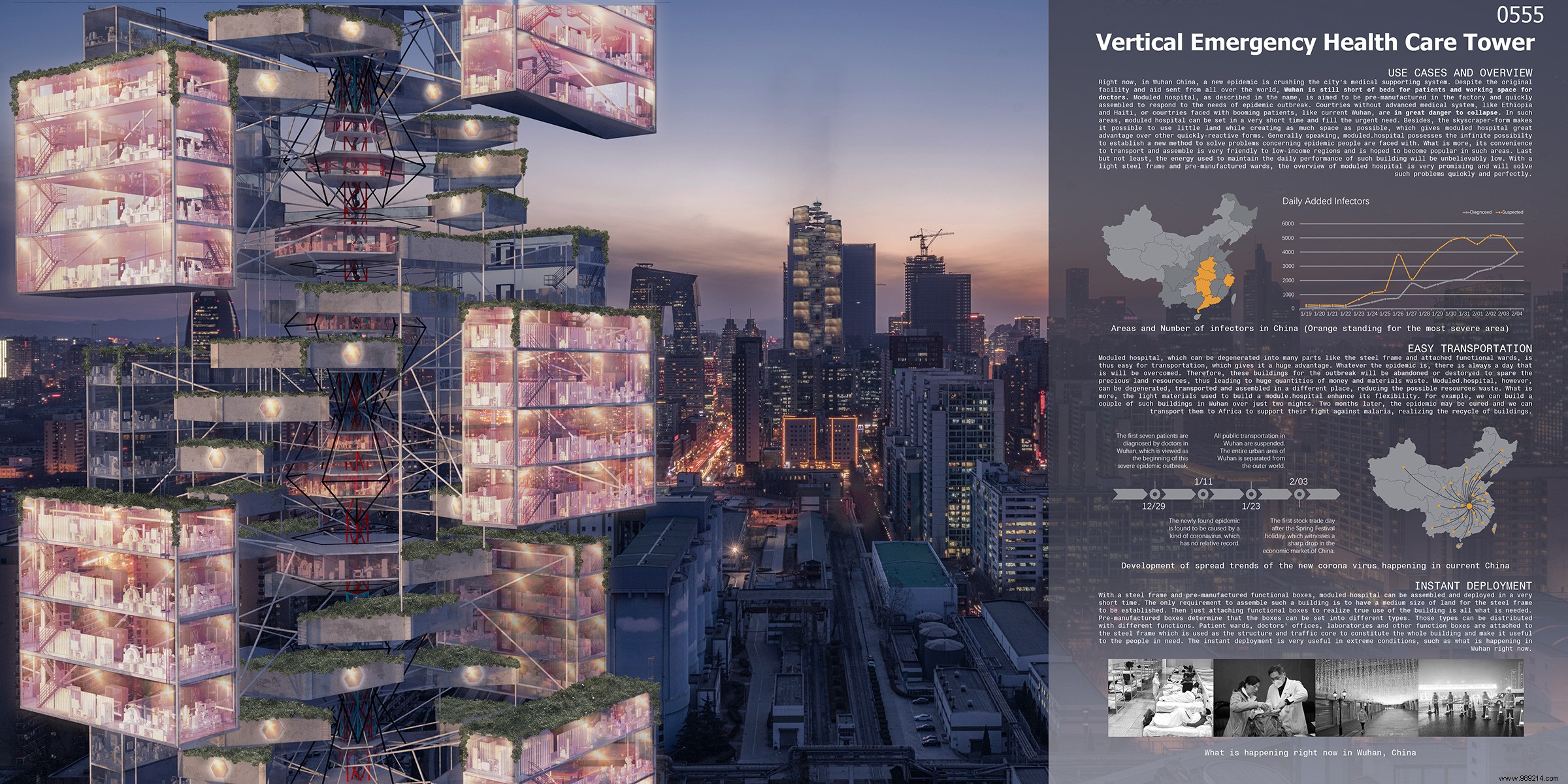First place in the eVolo 2020 Skyscraper Competition goes to a Chinese creation. Thought as a response to the current SARS-CoV-2 coronavirus pandemic, the Epidemic Babel skyscraper could make it possible to react more quickly to future episodes of the genre.
At the end of April 2020, the eVolo 2020 Skyscraper Competition architecture competition announced its winners; the Chinese architects D. Lee, Gavin Shen, Weiyuan Xu, Xinhao Yuan at the origin of the Epidemic Babel project. It is a rapidly deployable hospital skyscraper in the event of an epidemic. Experts have been greatly inspired by the current Covid-19 pandemic, which in one year has caused nearly 80 million cases and more than 1.8 million deaths.
It must be said that the coronavirus pandemic has highlighted the weakness of health systems , sometimes even within developed countries. In addition, the pandemic took hold quite quickly, obviously not leaving enough time for decision-makers to react at the ideal time. The Chinese architects therefore propose here a skyscraper composed of a steel frame in which prefabricated boxes are automatically fixed as needed without causing clutter.

According to the architects, the construction model is very simple; so a team could take only five days to prepare the desired configuration. All you have to do is erect the steel frame and choose the prefabricated enclosures to assemble. In the event of a pandemic, the authorities could therefore react very quickly by setting up the famous structure. Thus, hospitals do not risk saturation , which will obviously limit the loss of human life.
Alternatively, the architects said that prefabricated enclosures are designed in factories and can be easily mobilized . In addition, these same boxes as well as the frame are very light. This therefore facilitates their possible transport to more distant areas. The architects also alluded to the temporary hospitals built in China. According to them, the Epidemic Babel would be faster to build and potentially less expensive.
At the end of March 2020, China was already using various technological means as support in its fight against the coronavirus. The Winsun company had 3D printed no less than 200 maisonettes covering an area of 10 m². Resistant to earthquakes as well as severe weather, these small constructions were intended to accommodate people in quarantine and thus unclog hospitals.